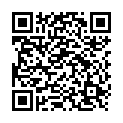|
|
|
| Module code: MAB.4.2.1.15 |
|
|
2S (2 hours per week) |
|
2 |
| Semester: 3 |
| Mandatory course: no |
Language of instruction:
German |
Assessment:
Seminar paper
[updated 19.02.2018]
|
BMT2590.MEN (P200-0018) Biomedical Engineering, Bachelor, ASPO 01.10.2018
, semester 5, optional course
BMT2590.MEN (P200-0018) Biomedical Engineering, Bachelor, SO 01.10.2025
, semester 5, optional course
KI591 (P200-0018) Computer Science and Communication Systems, Bachelor, ASPO 01.10.2014
, semester 5, optional course, non-technical
KIB-MENT (P200-0018) Computer Science and Communication Systems, Bachelor, ASPO 01.10.2021
, semester 5, optional course, non-technical
KIB-MENT (P200-0018) Computer Science and Communication Systems, Bachelor, ASPO 01.10.2022
, semester 5, optional course, non-technical
MAB.4.2.1.15 (P200-0018) Mechanical and Process Engineering, Bachelor, ASPO 01.10.2013
, semester 3, optional course
PIBWN39 Applied Informatics, Bachelor, ASPO 01.10.2011
, semester 5, optional course, not informatics specific
PIB-MENT (P200-0018) Applied Informatics, Bachelor, ASPO 01.10.2022
, semester 5, optional course, not informatics specific
PIB-MENT (P200-0018) Applied Informatics, Bachelor, SO 01.10.2026
, semester 5, optional course, not informatics specific
PRI-MENT (P200-0018) Production Informatics, Bachelor, SO 01.10.2023
, semester 5, optional course, not informatics specific
PRI-MENT (P200-0018) Production Informatics, Bachelor, SO 01.10.2026
, semester 5, optional course, not informatics specific
|
30 class hours (= 22.5 clock hours) over a 15-week period.
The total student study time is 60 hours (equivalent to 2 ECTS credits).
There are therefore 37.5 hours available for class preparation and follow-up work and exam preparation.
|
Recommended prerequisites (modules):
None.
|
Recommended as prerequisite for:
|
Module coordinator:
Sandra Wiegand, M.A. |
Lecturer: Sandra Wiegand, M.A.
[updated 13.07.2011]
|
Learning outcomes:
After successfully completing this module, the students will have acquired the following competences:
- They will know, understand and be able to explain the structure of mentoring programs
- They will know and understand theories of conversation techniques and be able to
apply them during consultations
- They will be able to plan and conduct consultations and group discussions
- They will be able to reflect upon and optimize their consulting competences
- They will be able to build new networks
(Text form: In addition to teaching the history, structure and background of mentoring programs in general, this course is intended help students become familiar with the university´s internal mentoring program.
Students will get to know different theories of conversation and practice using them. By means of different methods, students will learn to reflect upon and optimize their own consulting skills. For the duration of one semester, students will support a group of 6-10 other students via group work and individual counselling.
Through regular inter-faculty meetings, students will establish new networks.
[updated 19.02.2018]
|
Module content:
- Definition, history and background of mentoring programs in the USA and
Europe
- Structure and course of the HTW mentoring program
- Theories in conversation management
- Theories about group dynamics
- Non-verbal communication
- Schulz von Thun communication model
- Constructive criticism
- Giving feedback
- Active listening
- Assuming roles
- Planning, structuring and recording consultations and
group discussions
[updated 19.02.2018]
|
Teaching methods/Media:
Worksheets and guidelines for the course and presentations, slide handouts, work in small groups, role playing
[updated 26.02.2018]
|
Recommended or required reading:
Deutsches Jugendinstitut e.V. (Hrsg.) (1999): Mentoring für Frauen. Eine Evaluation verschiedener Mentoring Programme. München.
Haasen, Nele (2001): Mentoring. Persönliche Karriereförderung als
Erfolgskonzept. München.
Heinze Christine (2002): Frauen auf Erfolgskurs. So kommen Sie weiter mit Mentoring. Freiburg.
Krell, Gertraude (Hrsg.) (1997): Chancengleichheit durch Personalpolitik,Wiesbaden
[updated 19.02.2018]
|


